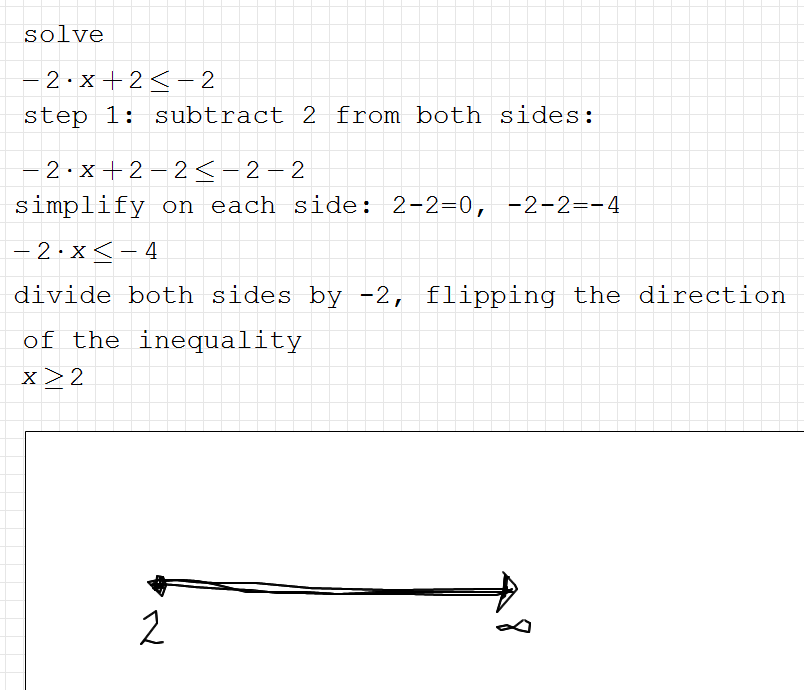
Solving the Inequality -2x + 2 ≤ -2 Explained
| Mathematical Steps | Plain English Explanation |
|---|---|
| Start with the original inequality: -2x + 2 ≤ -2 | We begin with the inequality we want to solve. The goal is to find all values of x that make this statement true. |
| Move the constant to the other side: -2x ≤ -4 | We move the constant term 2 to the other side of the inequality by subtracting 2 from both sides. This gives us -2x ≤ -4. |
| Divide by -2: x ≥ 2 | We divide both sides by -2 to isolate x. Note that when we divide by a negative number, the inequality sign flips. This gives us x ≥ 2. |
| Inequality Form: x ≥ 2 | The inequality form of the solution is x ≥ 2. This means x can be any number greater than or equal to 2. |
| Set Builder Form: {x | x ≥ 2} | In set builder notation, the solution is written as {x | x ≥ 2}, which means the set of all x such that x is greater than or equal to 2. |
| Interval Form: [2, ∞) | In interval notation, the solution is [2, ∞). This means x can be any number from 2 to infinity, including 2. |
Final Result
The solution to the inequality -2x + 2 ≤ -2 is x ≥ 2. In set builder notation, it’s {x | x ≥ 2}, and in interval notation, it’s [2, ∞).
